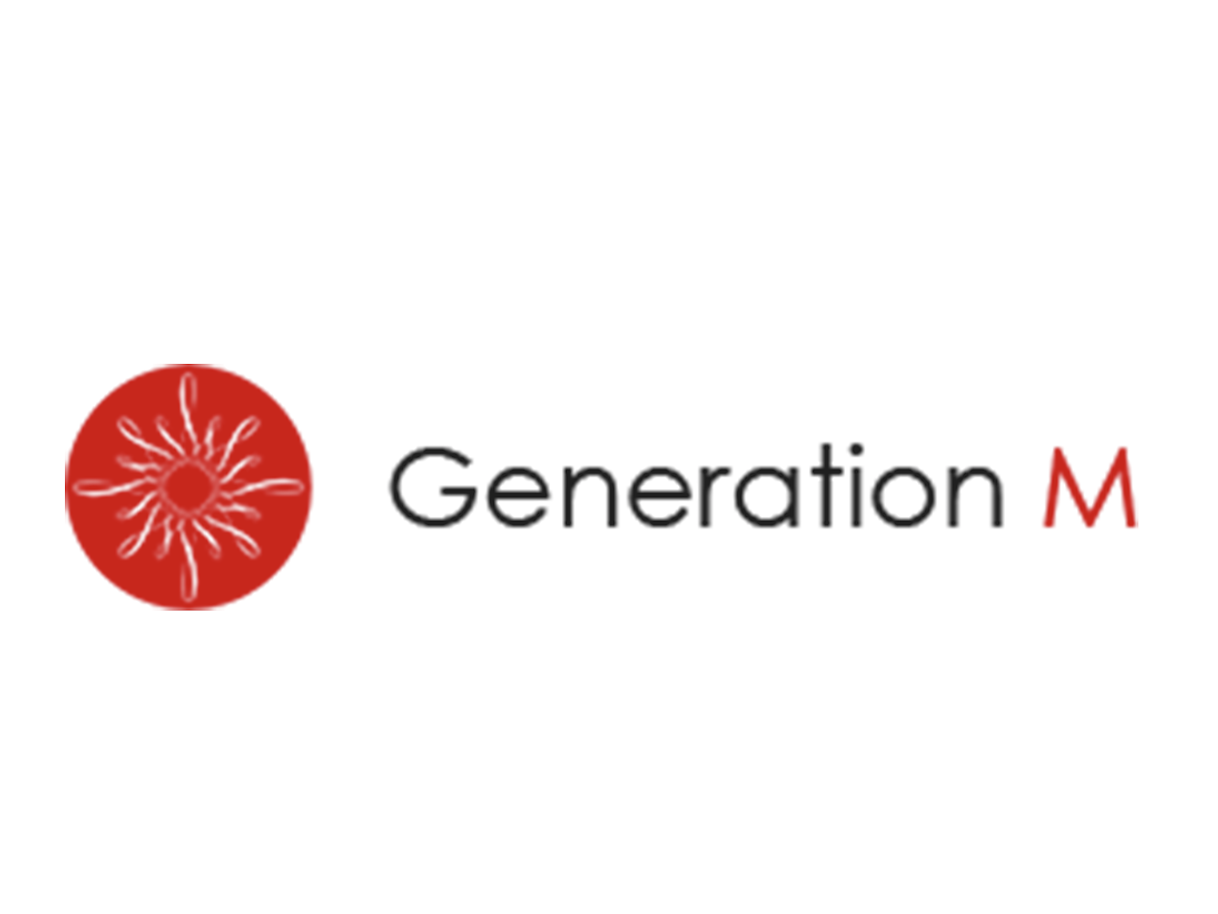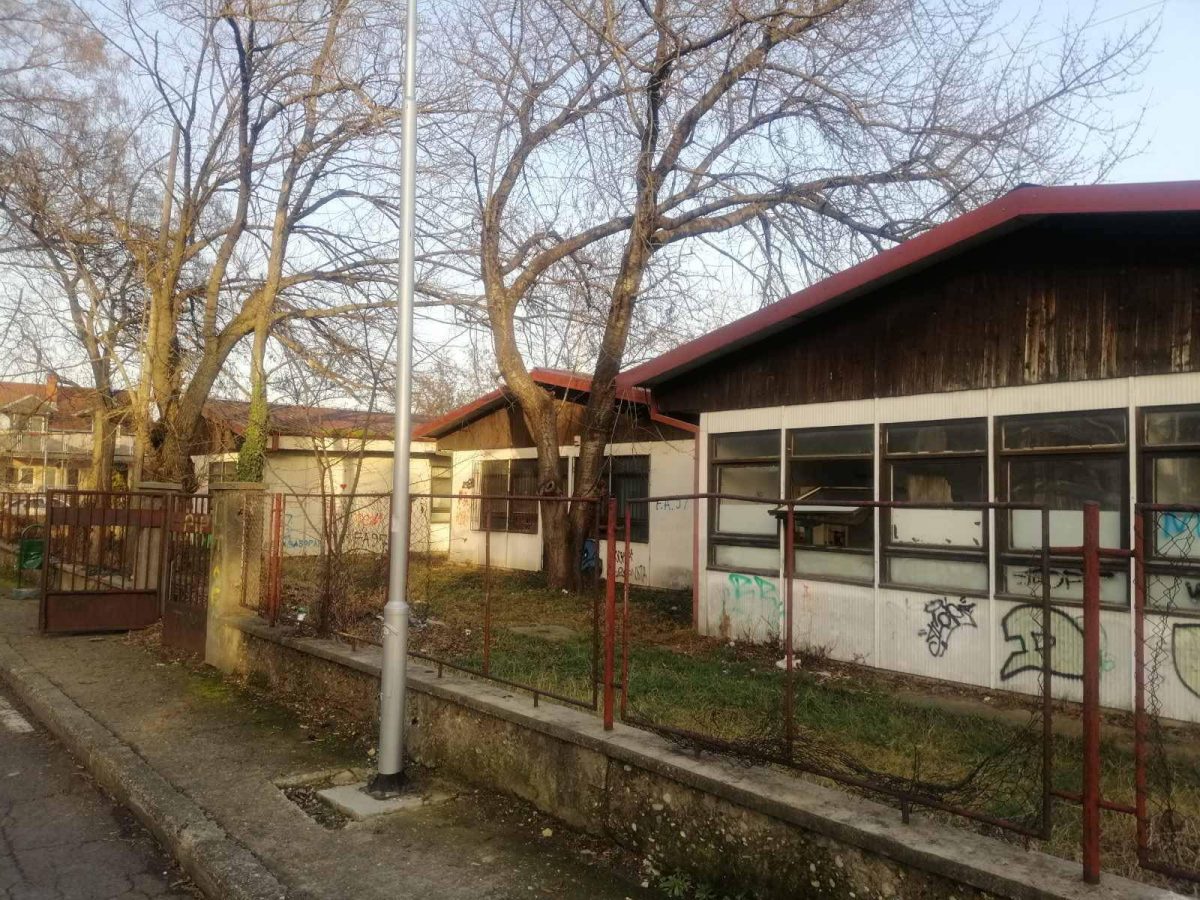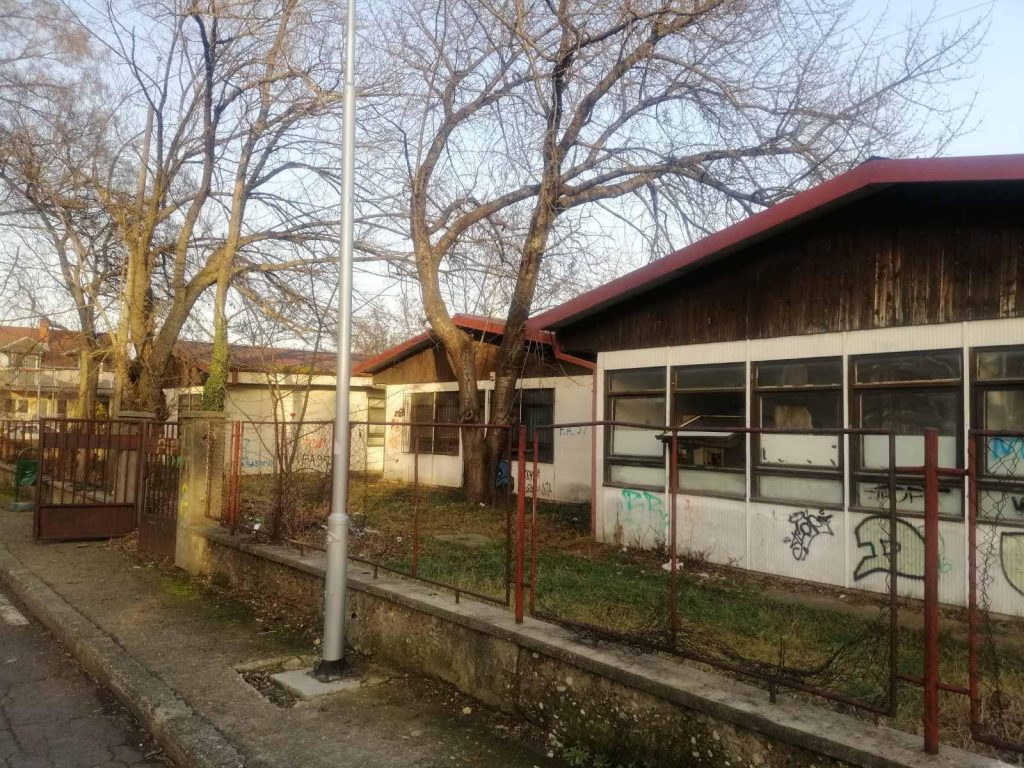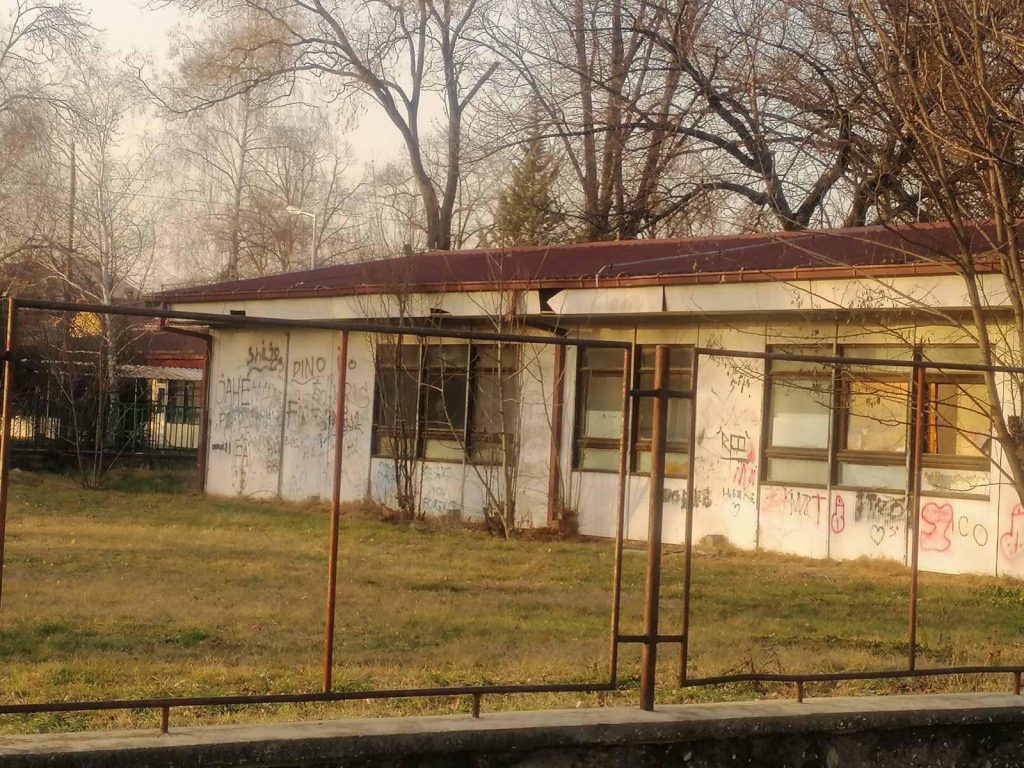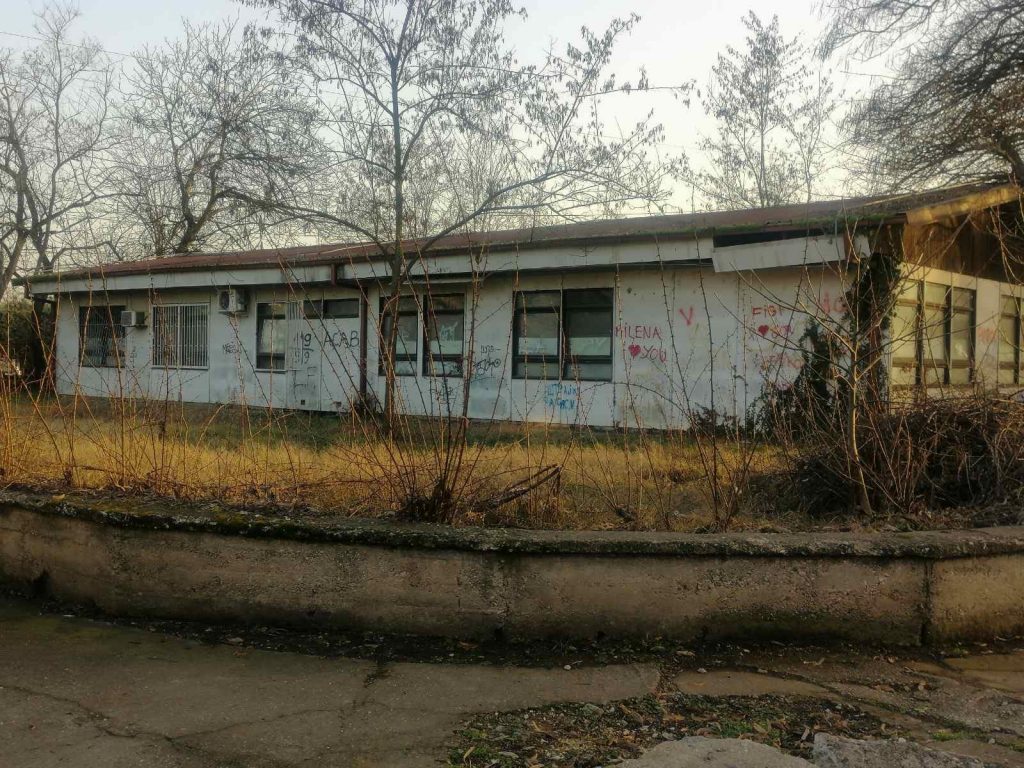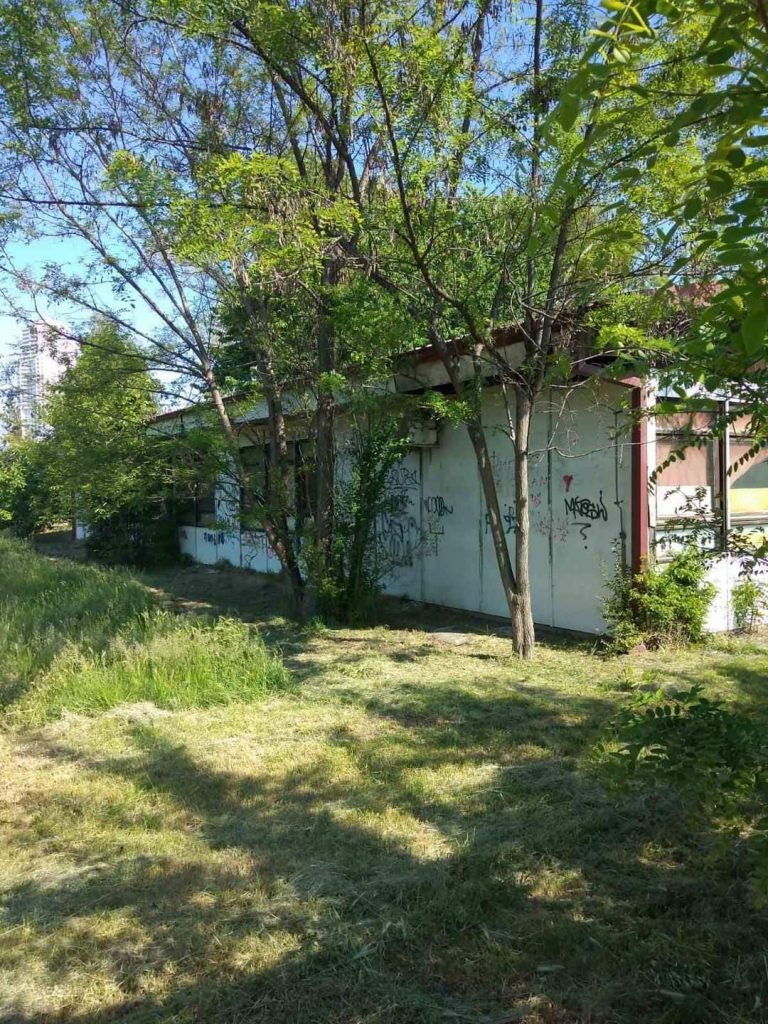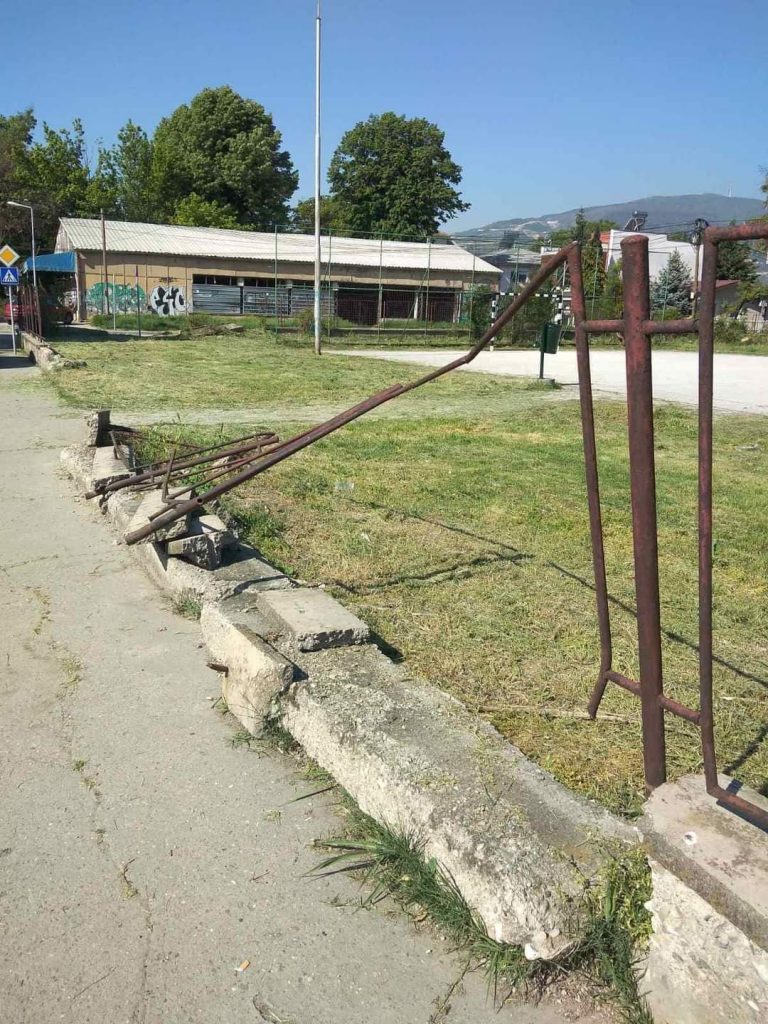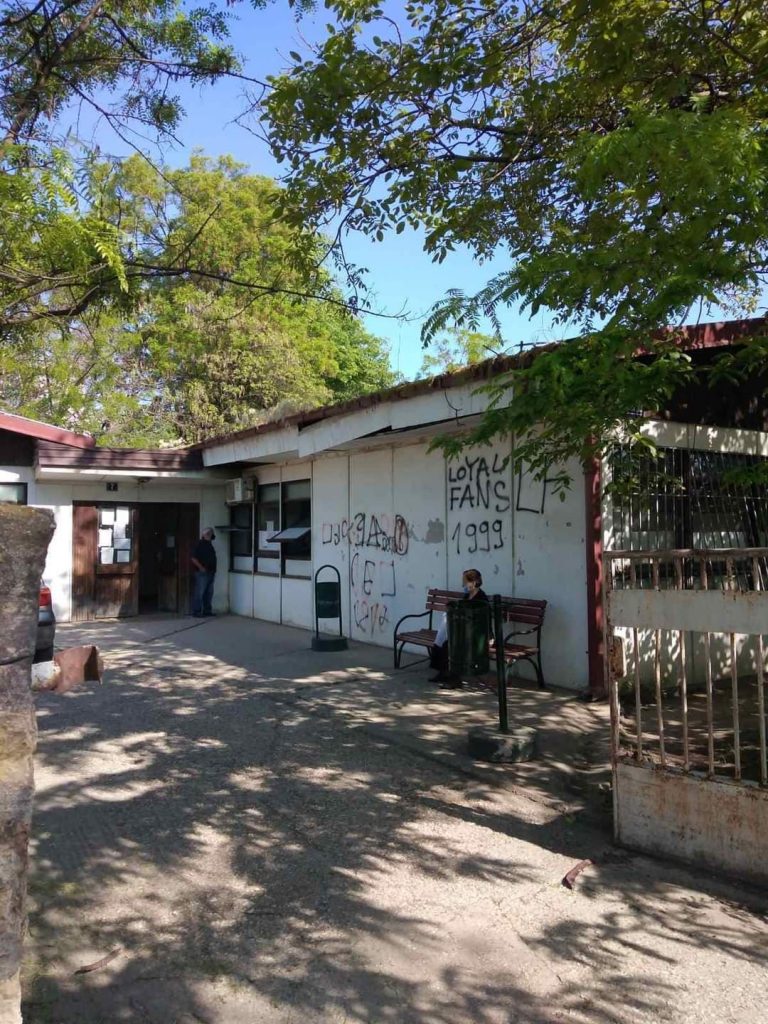At first sight, it may appear that the depicted facility is located somewhere in Libya, Syria, or in any other war-torn country in the world. We could agree also it may resemble a location in a severely under-developed community, lacking resources and a concept of progress and vision. My goal is certainly not to exaggerate the assessment, however, in the third decade of the 21stcentury, it is unacceptable that a clinic servicing over 5.000 locals has not been upgraded now for decades.
For those interested in geography, this clinic is located in the eastern part of the City of Skopje, the capital of the Macedonian Republic. The name of the neighborhood is Lisiche (pronounced as Lee-see-tche). It is nestled only about 2, 5 miles from its too-much-history-in-one-place square called Macedonia Square, famous for its number of statues of historical figures laid out throughout an area of ‘only’ about 18.500 m2. The Square showcases history from ancient times up to the beginning of the 20thcentury. You certainly cannot miss the grandiose statue of arguably the most famous Macedonian conqueror, Alexander the Great, pointing with his sword to the East while mounted on his also famous horse, Bucephalus.
The neighborhood of Lisiche was established as a consequence of the infamous and deadly 1963 Skopje earthquake, which killed around 1.000, injured about 5.000, and displaced about 200.000 people. Those affected by it, including my grandparents, were given a ‘temporary’ relocation in this neighborhood ‘until the consequences of the earthquake are cleared up and Skopje resumes back to normal,’ per what I was told by my grandparents. I happened to grow up right next door to my grandparents’ house. Skopje is the city I grew up in and called home for 30 years before I immigrated to the United States.
As a fun fact, United States President John F. Kennedy ordered the Department of Defense and USAID to take action for disaster assistance in Skopje by sending personnel, prefabricated houses, tent cities, and other forms of relief.
Lisiche is where my heart is. It’s where I created all of my childhood memories. My parents and grandparents used to take me to this clinic whenever necessary. I can never forget the warm-welcoming staff every single time we visited. Some of the staff at this clinic were well-experienced professionals, many of whom began their medical careers as doctors serving in former Yugoslavia – and all the way to their retirement, within the period when Macedonia broke out from Yugoslavia and gained its independence in 1991.
Politically, many things did change in those 30 years, looking at things from a present-day perspective. When I visited Macedonia back in September 2020, I established that the clinic is identical as it was before I immigrated in 2013, and is just as identical as it was growing up. How little conditions have improved ever since the founding of the clinic!
Being a Macedonian American is not only about learning the values of my Macedonian heritage, but it is also about learning about the values that the United States of America was founded on. One of the values that really always stands out to me is “Life, Liberty and the Pursuit of Happiness”, as written in the United States’ 1776 Declaration of Independence.
It is a self-explanatory quote. It should have not been specific to the United States Declaration of Independence, but also universal. Human decency does not have a price. Everyone should be entitled to “life, liberty, and Pursuit of Happiness”. These values are not and should not be ‘political’. They are universal, essential, and do rightfully apply to all peoples in the world, including the Macedonian people.
Adversely, this clinic depicts the failure of the Macedonian political elites, from Macedonia’s independence until today, to provide conditions servicing their own citizens with the proper resources the Macedonian people rightfully deserve. Just as in the United States, Macedonian politics are dominated by two main parties, and the neighborhood has been governed by both. There is still this notion that this neighborhood has been severely neglected and underdeveloped compared to other neighborhoods within its governing Municipality of Aerodrom. Its citizens have been subject to a political illusion that overpromised and under-delivered. The lack of progressive reforms and the lack of vision for continuous development of the local community here is glaringly obvious.
Macedonia has to take a different path to change its ‘business as usual’ approach and concentrate on the development of their local communities, by investing in meaningful capital projects, such as building new hospitals, clinics, and schools, just to name a few. This particularly applies to the neighborhood of my childhood.
Until then, we continue to ask the local authorities just what exactly they intend to do to address the forgotten clinic in this neighborhood since it is still a pressing issue that affects both the local population and the medical staff servicing the area? Above all else, the concern here is ensuring that the population has access to quality health care and decent facilities they require and rightfully deserve.
The diaspora is ready and willing to help in any way they can. We can work together with the local authorities to make this happen and help steer local communities in a better direction. The local authorities need to make a move as soon as possible. Lisiche residents are still hopeful they will get the facility they fully and rightfully deserve.
P.S. I dedicate this article in memory of my late father and grandparents I lost during the COVID 19 pandemic. There was no moment I stopped thinking about them while writing this article. I will dearly miss them forever.
Any opinions or views expressed in articles or other pieces appearing in UMD Voice are those of the author alone and are not necessarily those of the United Macedonian Diaspora and its young leaders’ program Generation M; the appearance of any such opinions or views in UMD Voice is not and should not be considered to be an endorsement by or approval of the same by UMD and Generation M.
